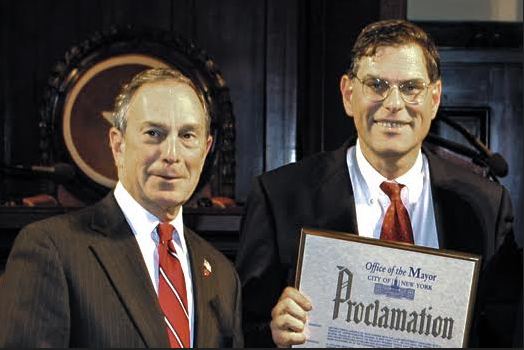Friedlander reflects on his time as counsel for New York City

The New York City Law Department is not a well-known city agency, but it is an integral one that has a role in nearly all matters that affect people within the five boroughs. For more than 44 years, Jeffrey D. Friedlander has served the agency in various capacities, and even though most New Yorkers have probably never heard of him, he has certainly played a role in their lives.
“Jeff has always been the ship that has guided us through,” said Law Department Internal Communications Director Kate O’Brien Ahlers. “He’s the consistent person who has been here through all of the tribulations that the city has gone through.”
Friedlander, 68, grew up in Manhattan and got his law degree from New York University. He moved to Boerum Hill around the time he went to work at the Law Department. During the last 20 years or so, he has served as the first assistant corporation counsel, the department’s second-in-command, under Mayors Bill de Blasio, Michael Bloomberg and Rudy Giuliani.

Brooklyn Boro
View MoreNew York City’s most populous borough, Brooklyn, is home to nearly 2.6 million residents. If Brooklyn were an independent city it would be the fourth largest city in the United States. While Brooklyn has become the epitome of ‘cool and hip’ in recent years, for those that were born here, raised families here and improved communities over the years, Brooklyn has never been ‘uncool’.